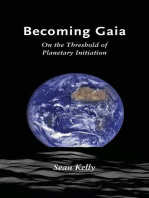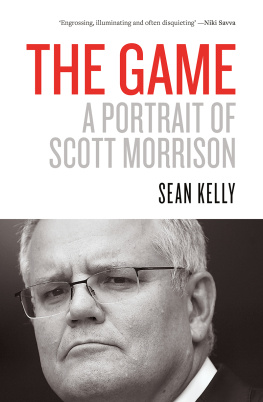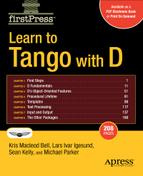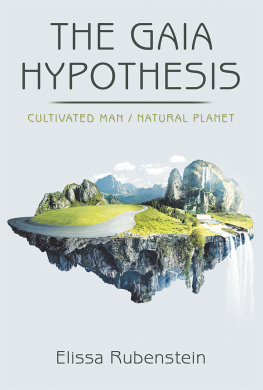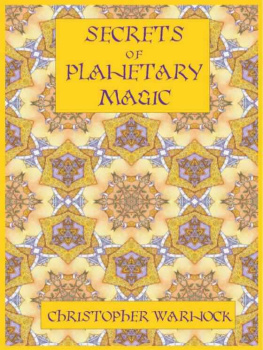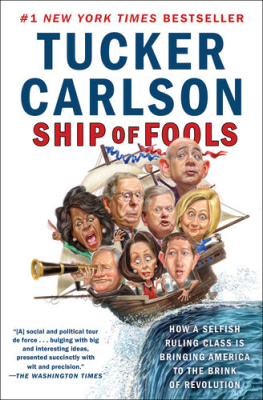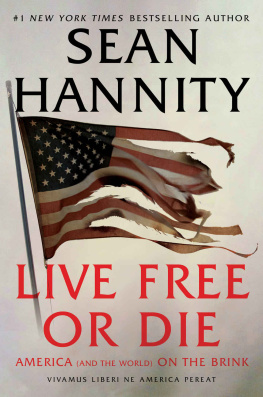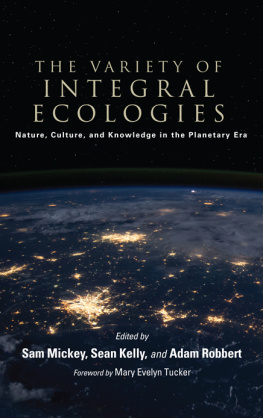Sean Kelly - Becoming Gaia: On the Threshold of Planetary Initiation
Here you can read online Sean Kelly - Becoming Gaia: On the Threshold of Planetary Initiation full text of the book (entire story) in english for free. Download pdf and epub, get meaning, cover and reviews about this ebook. genre: Romance novel. Description of the work, (preface) as well as reviews are available. Best literature library LitArk.com created for fans of good reading and offers a wide selection of genres:
Romance novel
Science fiction
Adventure
Detective
Science
History
Home and family
Prose
Art
Politics
Computer
Non-fiction
Religion
Business
Children
Humor
Choose a favorite category and find really read worthwhile books. Enjoy immersion in the world of imagination, feel the emotions of the characters or learn something new for yourself, make an fascinating discovery.
- Book:Becoming Gaia: On the Threshold of Planetary Initiation
- Author:
- Genre:
- Rating:5 / 5
- Favourites:Add to favourites
- Your mark:
- 100
- 1
- 2
- 3
- 4
- 5
Becoming Gaia: On the Threshold of Planetary Initiation: summary, description and annotation
We offer to read an annotation, description, summary or preface (depends on what the author of the book "Becoming Gaia: On the Threshold of Planetary Initiation" wrote himself). If you haven't found the necessary information about the book — write in the comments, we will try to find it.
Becoming Gaia: On the Threshold of Planetary Initiation — read online for free the complete book (whole text) full work
Below is the text of the book, divided by pages. System saving the place of the last page read, allows you to conveniently read the book "Becoming Gaia: On the Threshold of Planetary Initiation" online for free, without having to search again every time where you left off. Put a bookmark, and you can go to the page where you finished reading at any time.
Font size:
Interval:
Bookmark:
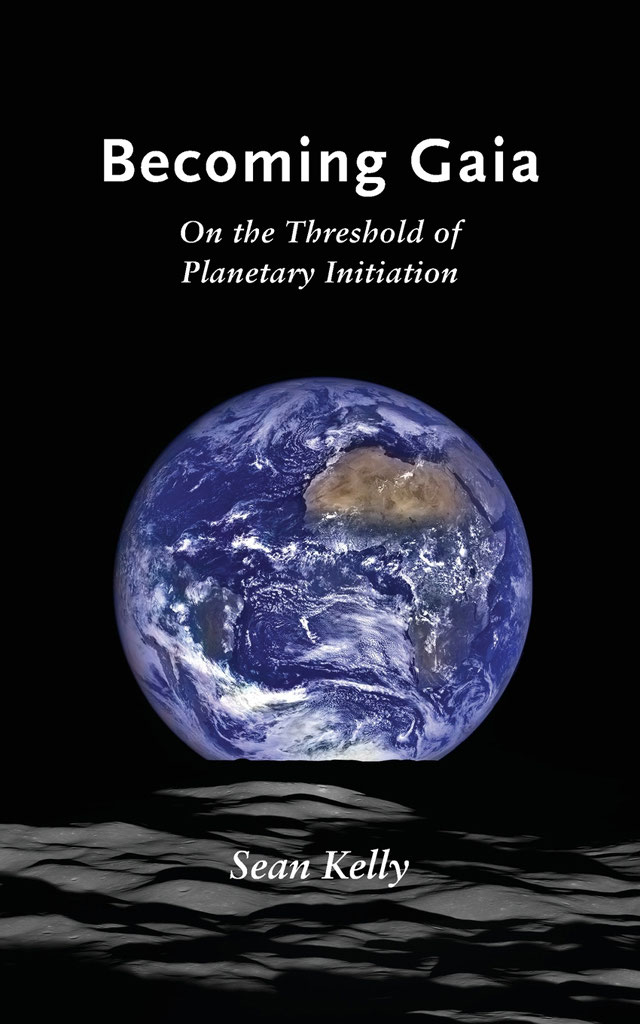
Becoming Gaia is a path-breaking book. Drawing together a wide range of creative thought, Sean Kelly offers an engaging vision of an integral ecology for our times. There are few books as comprehensive in reach or compelling in insight. I trust it will inspire reflection and transformation for our urgent taskbecoming part of the living Earth community.
MARY EVELYN TUCKER, YALE UNIVERSITY, CO-AUTHOR, Journey of the Universe
As we convulse our way into irreversible anthropocenic harm, Becoming Gaia doesnt let us give up and give in. Even mass extinctions and the possibility of our own do not add up to The End. We are called to face, indeed to embrace, the process as a collective death experience. Like ancient rituals of initiation, of rebirth through fire and water, the dying canmay not but canlead to a new birth: a new Age of Enlivenment. Uninhibited by the limiting dogmas of some environmentalism, Sean Kelly invites fellow humans beyond optimism and pessimism, to become what we already are: living members of a vibrant Earth. Always both practical and profound, this book pulses and flows with the life of the planet.
CATHERINE KELLER, GEORGE T. COBB PROFESSOR OF CONSTRUCTIVE THEOLOGY, DREW UNIVERSITY. AUTHOR OF Facing Apocalypse: Climate, Democracy and Other Last Chances and Theology of the Earth: Our Planetary Emergency and the Struggle for a New Public.
This book is an act of love. A reverence for reality underpins the integration of insight from diverse schools of thought. Whether ancient wisdom traditions or the latest science, Sean Kelly weaves together what is salient for our sense-making in times of great anxiety and disruption. In service of our own reconciliation with the predicament we are in, Sean shares the results of that sense-making. Whether you fully agree, or are inspired to find your own philosophical grounding, this book may nourish your journey as an expression of one consciousness, within Gaia, our planetary home.
JEM BENDELL, FOUNDER OF THE DEEP ADAPTATION MOVEMENT AND CO-AUTHOR OF Deep Adaptation: Navigating the Realities of Climate Chaos.
In Becoming Gaia, Sean Kelly has looked long and hard into the apocalyptic crisis of our time. He has brought all his courage, his rigorous intellect, and his compassionate care to the great task of forging a way to engage that crisis and to live into whatever future will now unfold. One might say that Kelly has taken the great bull of our age by the horns; but instead of doing so with the machismo of the bullfighter, he has looked deeply into its eyes, come into relationship with it, revealed its interior soul. With the aid of his major mentors and a pantheon of personal influences whom he lovingly invokes, he ends the book on an almost ecstatic note, setting forth the high spiritual vision that inspires him through the present darkness. Kelly has written a new De Consolatione Philosophiae for our time, a work both deeply learnd and deeply confessional.
RICHARD TARNAS, AUTHOR OF The Passion of the Western Mind and Cosmos and Psyche
On the Threshold of Planetary Initiation
Becoming Gaia
On the Threshold of Planetary Initiation
Sean Kelly
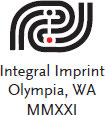
Becoming Gaia
On the Threshold of
Planetary Initiation
2021 Sean Kelly
All rights reserved. No part of this publication may be reproduced or utilized in any form or by any means, electronic or mechanical, including photocopying, recording, or by any information storage and retrieval system, without permission in writing from the Publishers.
Book and cover design by Jenn Zahrt.
Cover images by NASA/Goddard/Arizona State University
ISBN 978-1-947544-28-4
ISBN 978-1-947544-31-4 (e-book)
Printed globally on demand through IngramSpark
First printed in 2021 by INTEGRAL IMPRINT, a REVELORE imprint.
Integral Imprint/Revelore Press
620 73rd Ave NE
Olympia, WA 98506
www.integralimprint.com
www.revelore.press
I am grateful to my editor, Jeremy Johnson, for his early and steadfast faith in my project and to producer, Jenn Zahrt, for her fine eye and lovely design; to Yuka Saito, Robert McDermott, Richard Tarnas, Brian Swimme, Jeremy Lent, Lisa Ferguson, and Linda Hess for their moral support and for helpful feedback on various portions of this text; to Jem Bendell for catalyzing my shift from incubation to writing; to my colleagues, Matthew Segall, Jacob Sherman, and Elizabeth Allison for their encouragement; and to Joanna Macy and Edgar Morin, both of whom have shown me what it looks like, even and especially in these end times, to love for the sake of life, and live for the sake of love.
IWRITE THESE LINES in the midst of the Great Pause occasioned by the global COVID- 19 pandemic. An unprecedented hundreds of millions are sheltering-in-place as the captains of industry seek to return the global economy to the illusion of what was already a precarious equilibrium. I say illusion because the signs of approaching collapse have been accumulating for some time. As I make explicit in the concluding chapter of this book, we are living in end times. Even if, against all odds, we should succeed in slowing, if not halting, the accelerating mass extinction of species, even if we should avoid triggering the phase-shift into Hothouse Earth, we stand poised on the threshold of what amounts to a planetary initiation with its own collective near-death experience ( NDE). We cannot know what lies on the other side of this threshold. Perhaps all we can say with confidence is that, as Joachim of Fiore wrote almost a millennium ago, We shall not be what we have been, but we shall begin to be other.
There are, to be sure, many individuals and communities already living this other, many of whom are resisting business as usual, guided by their commitment to what Joanna Macy and others call the Great Turning to a life-sustaining society. At the core of this commitment is a recognition of our integral interbeing with Gaia, my preferred name for planet Earth, conceived and experienced not only as system but as community and subject in her own right. It is in light of this integral interbeing that I propose the term Gaianthropocene as an alternative to the now widely used Anthropocene to describe the new geological age we have entered into.
Our initiation into this new age, even as it threatens collapse and extinction, offers the possibility at least for greater actualization of spiritual ultimates. To accomplish this, however, requires that we not shy away from reflecting on these ultimates, that we take a stand on what we hold to be most true and good. In my own reflections, I continue to be inspired by Hegels assertion that The truth is the whole. The whole, he tells us,
is merely the essential nature reaching its completeness through the process of its own development. Of the Absolute it must be said that it is essentially a result, that only at the end is it what it is in very truth; and just in that consists its nature, which is to be actual, subject, or self-becoming, self-development.
Even if one is not able to follow Hegel in speaking of the Absolute, it is a remarkable fact that our end times coincide with the emergence of a near consensus regarding what can be known about the origins, history, and probable destiny of the cosmos, including especially the evolution of Gaia, our planet home. Though more speculative (and contested), there is a similar consensus among those scholars who concern themselves with such matters regarding the evolution of human consciousness. The latter includes not only world history as normally conceived, but deeper and more integral accounts of human development. As with the history of the cosmos, the history or evolution of human consciousness is a time-developmental process, which is to say that it has definite stages, a deep narrative structure with beginning, middle, and for those open to such considerations, some kind of end. Unlike the hypothetical end of the physical cosmos, however (with the currently favored scenario of universal Heat Death), the end of the evolution of consciousness, I maintain, is no mere terminus, but something in the nature of a telos or goal.
Next pageFont size:
Interval:
Bookmark:
Similar books «Becoming Gaia: On the Threshold of Planetary Initiation»
Look at similar books to Becoming Gaia: On the Threshold of Planetary Initiation. We have selected literature similar in name and meaning in the hope of providing readers with more options to find new, interesting, not yet read works.
Discussion, reviews of the book Becoming Gaia: On the Threshold of Planetary Initiation and just readers' own opinions. Leave your comments, write what you think about the work, its meaning or the main characters. Specify what exactly you liked and what you didn't like, and why you think so.

